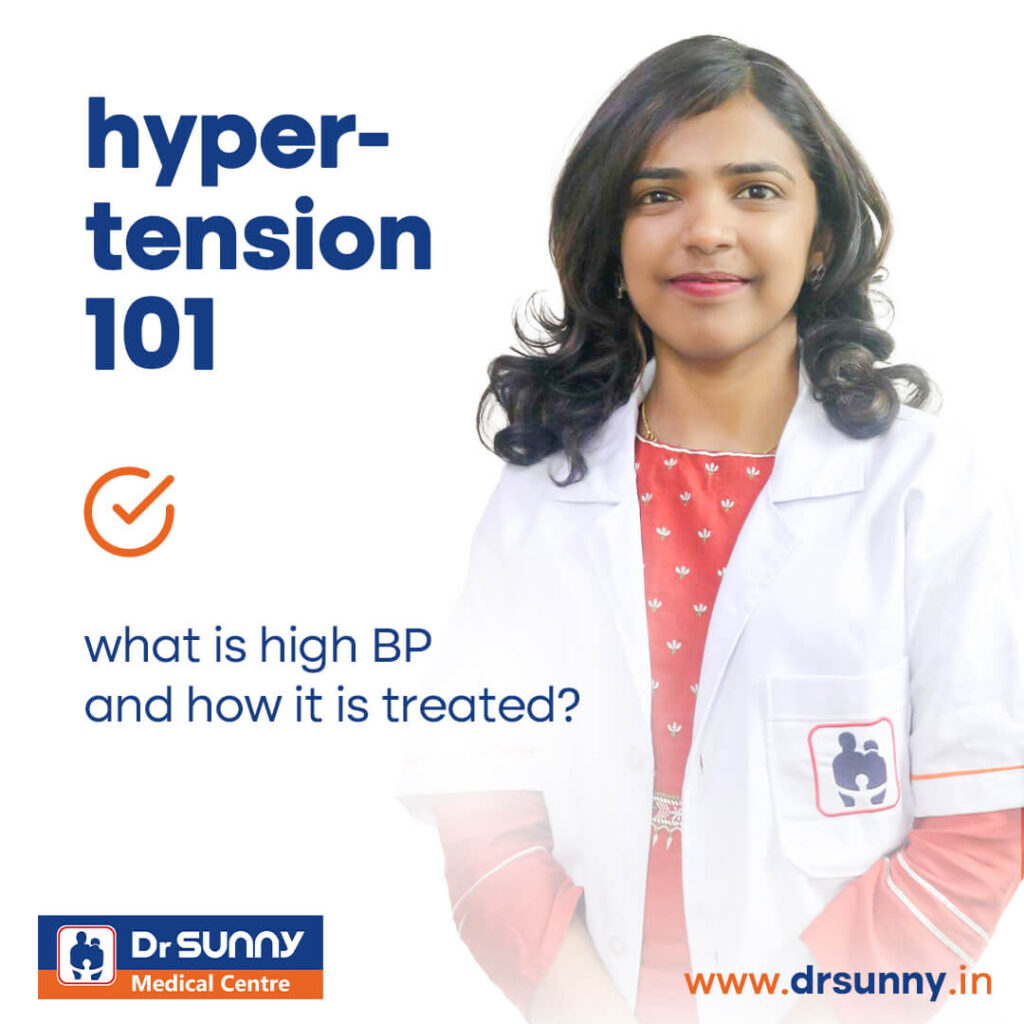

Hypertension 101: What is high BP & How it is treated?
Hypertension, commonly known as high blood pressure, is a medical condition characterized by elevated blood pressure in the arteries. This chronic condition affects millions of people across the world and is responsible for complications including stroke and renal problems.
Hypertension is often termed as “silent killer” because it does not show any noticeable symptoms until it reaches life-threatening levels. You may experience severe headache or nose bleeding when blood pressure crosses the normal range. Let us look at the different ranges of blood pressure.
✓ Normal blood pressure: Blood pressure is 120/80 mm Hg or lower.
✓ Elevated blood pressure: The top number ranges from 120 to 129 mm Hg and the bottom number is below, not above, 80 mm Hg.
✓ Stage 1 hypertension: The top number ranges from 130 to 139 mm Hg or the bottom number is between 80 and 89 mm Hg.
✓ Stage 2 hypertension: The top number is 140 mm Hg or higher or the bottom number is 90 mm Hg or higher.
Complications Caused due to Hypertension
Uncontrolled BP can cause the following complications:
✓ Cardiovascular diseases: Heart needs to pump harder if the blood pressure is higher this can cause heart failure. Meanwhile, hardening or thickening of arteries can cause heart attack/stroke.
✓ Aneurysm: High BP can cause blood vessel to weaken & bulge forming aneurysm. It can be life-threatening if the bulge ruptures.
✓ Renal problems: Increased blood pressure can make blood vessels in kidneys become narrow or weak giving rise to chronic renal problems.
✓ Eye problems: High blood pressure can make blood vessels in the eye to narrow or thicken resulting in vision problems.
✓ Dementia: Narrowed or blocked arteries can limit blood flow to brain. This can lead to condition known as vascular dementia.
Risk factors
✓ Age: As you age your chances of getting hypertension increase. Especially if you are above 55.
✓ Family history: Having a family member with hypertension increases the likelihood of developing it.
✓ Consuming food high in sodium: Including food with high sodium content and low potassium content in your diet can increase the risk of hypertension.
✓ Alcohol: Frequent consumption of alcohol can also put you at the risk of hypertension.
✓ Sedentary lifestyle: Living a lifestyle devoid of physical activity can also increase your risk of hypertension. This also includes being overweight/obese.
✓ Certain medical conditions: If you are already suffering from health conditions including chronic kidney disease, obstructive sleep apnea or thyroid there are high chances that you may also get hypertension.
Treatment & Management
Regular check-ups are necessary for the diagnosis of hypertension. Once diagnosed it can be treated through lifestyle changes and, if necessary, your healthcare provider will also prescribe medication.
It’s important to consult a healthcare professional for proper diagnosis, treatment, and management of hypertension. They can provide personalized advice based on individual circumstances and health status.
If you are suffering from high BP or at risk of developing the problem you can consult Dr. Harshitha S, at Dr. Sunny Medical Center. She is our consultant in internal medicine and specializes in the treatment of hypertension.
